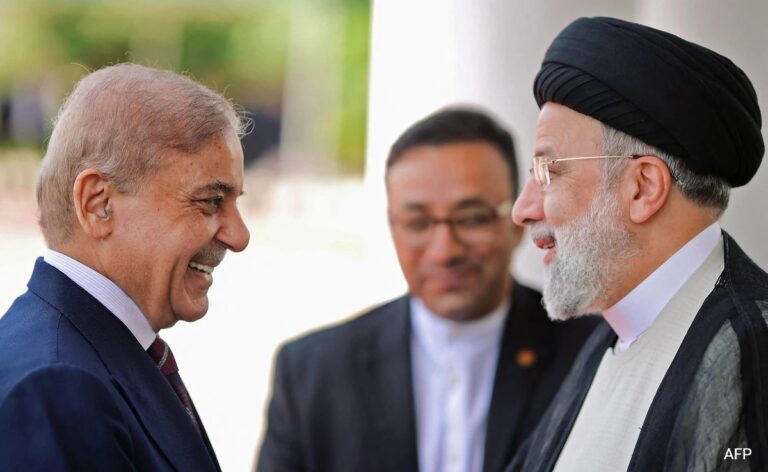
Iranian President Ebrahim Raisi, who is on a three-day visit to Pakistan, met with Shehbaz Sharif on Monday.
Washington:
The United States on Tuesday (local time) warned Pakistan of the “potential risk of sanctions,” adding that it would review business deals with Iran and continue disrupting proliferation networks and countermeasures.
U.S. State Department Chief Spokesman Vedant Patel emphasized that the U.S. is imposing sanctions on suppliers to Pakistan’s ballistic missile program, saying, “We are committed to ensuring that proliferation networks and weapons of mass destruction procurement activities occur wherever they occur.” “We will continue to disrupt and take action against them, regardless of the consequences.” … Broadly speaking, I would advise anyone considering doing business with Iran to be aware of the potential risks of sanctions, but ultimately the Pakistani government is in control of its own foreign policy. We can talk about pursuit. ”
In response to a question on the reasons behind these sanctions, Patel told reporters: “The sanctions have been imposed because these are propagators of weapons of mass destruction and their means of delivery.”
He said these organizations are based in China and Belarus.
“These are organizations based in the People’s Republic of China in Belarus, and we have seen them supplying equipment and other items to Pakistan’s ballistic missile program…” he added.
Patel also highlighted the Iranian President’s visit to Pakistan and the MoU signed between the two countries, and advised anyone considering entering into a business agreement with Iran to be aware of the potential risks of sanctions.
Following President Raisi’s three-day visit to Pakistan and the signing of eight bilateral agreements between the two countries, the spokesperson said that Iran’s position in the international community puts these relations at risk due to sanctions. He hinted that there was a possibility.
The talks, led by Prime Minister Shehbaz Sharif on the Pakistani side and President Raisi on the Iranian side, emphasized a shared vision to promote political, economic, trade and cultural ties between the two countries, Samar reported.
Prior to this, Iran and Pakistan signed eight memorandums of understanding for cooperation in various fields. Prime Minister Shehbaz and Iranian President Ebrahim Raisi witnessed the signing ceremony of the memorandum.
The agreement included cooperation in veterinary and animal health, judicial assistance in civil litigation, and security matters.
Last week, the U.S. government designated four organizations to target proliferators of weapons of mass destruction and their means of delivery. These organizations supply missile applications to Pakistan’s ballistic missile programs, including its long-range missile programs.
The companies also include the Belarus-based Minsk Wheel Tractor Plant, which supplies special vehicle chassis for Pakistan’s long-range ballistic missile program.
Sanctions were also imposed on three Chinese companies, including Xi’an Longde Technology Development Co., Ltd., Tianjin Creation Source International Trade Co., Ltd., and Grandpect Co., Ltd.
(Except for the headline, this story has not been edited by NDTV staff and is published from a syndicated feed.)

